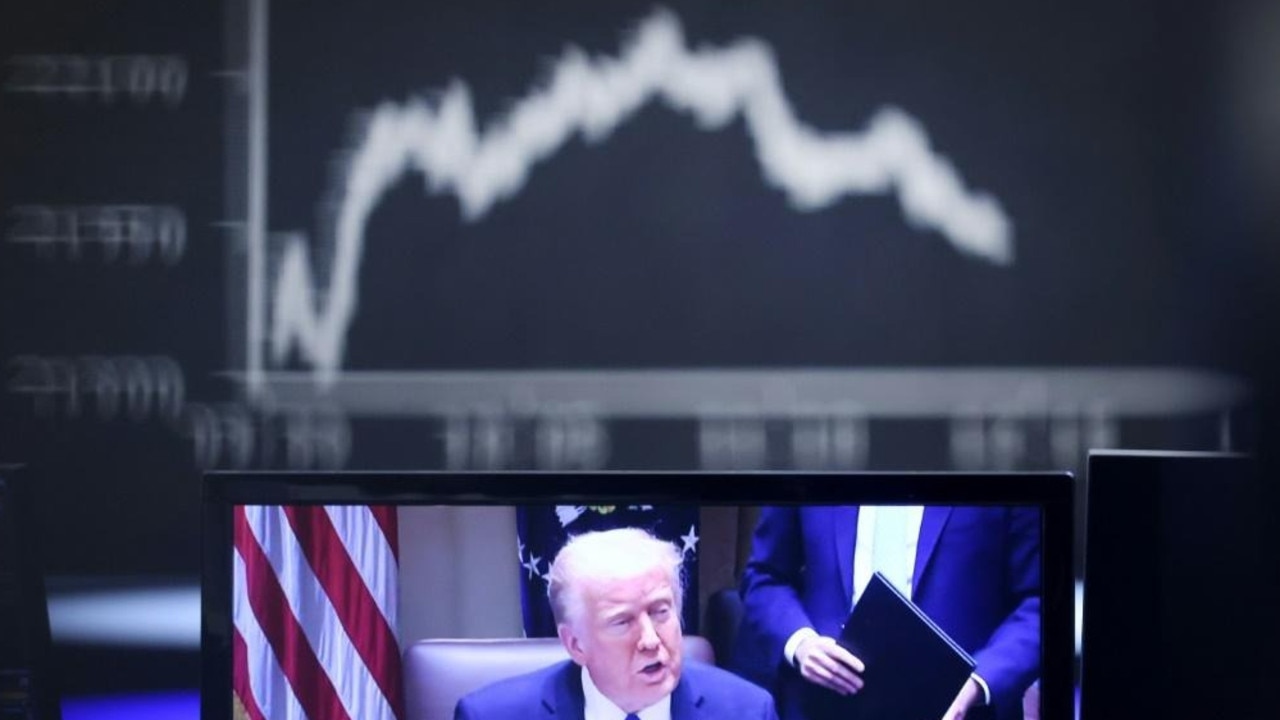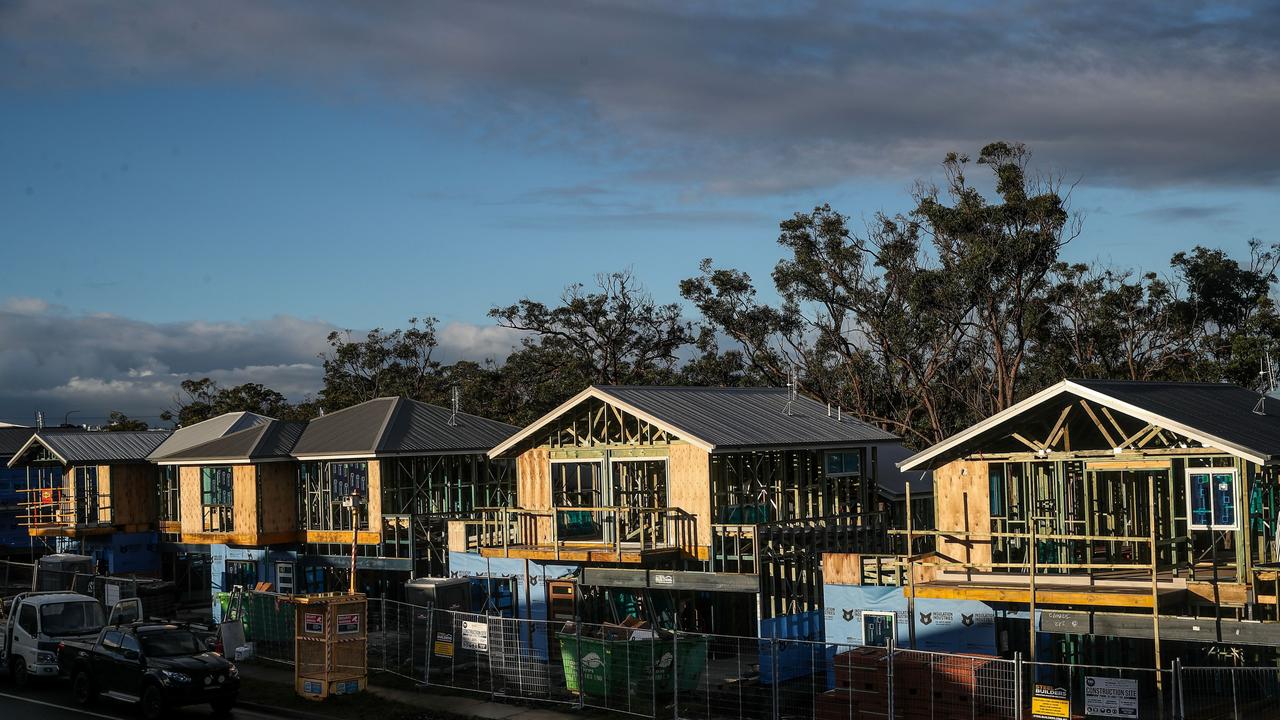Biological and transgender world views are exclusive
What fate awaits women who don’t want to share their hard-won rights with men who identify as female?

The federal government says its new religious freedoms legislation will protect people such as Israel Folau, but the new statutes are unlikely to protect female rugby players from being expelled from the game should they campaign to stop biological males from playing in the female competition.
Globally, there is a growing conflict over biological males who identify as women competing in women’s sports, entering women’s safe spaces, joining women’s organisations, and the list goes on.
In the US, 16-year-old Connecticut track and field athlete Selina Soule and two other girls have filed a civil-rights complaint with the state education department to stop biological boys playing in the girls’ sports.
This comes after two biological boys won 15 women’s state championships — titles that were held by 10 different Connecticut girls the previous year. Soule has been harassed on social media for speaking out.
The issue goes wider than sport. A Canadian salon providing waxing services was closed down after the female owner refused a body waxing request from a transgender male-to-female, who then lodged a complaint with a human rights tribunal, which is expected to take three months to decide.
Women in many countries are now campaigning to stop biological males from claiming the same sex-based rights as biological women.
These issues affect secular people, many or even most of whom hold that human sex is biologically fixed. At the same time, these issues attack the freedom of religious organisations, such as faith-based schools, that could be required to allow boys who identify as girls into female safe spaces and sports, if exemptions for faith-based schools are removed from the Sex Discrimination Act, as being proposed by the federal Attorney-General. These exemptions should be maintained to preserve the liberty of schools to act in accordance with their ethos.
Conflict of world views
At its heart, this is a contest between those who hold the biological worldview of the human person — that sex is inherently, biologically fixed according to male and female reproductive functions — and those who hold the ideological, transgender worldview from the social sciences that sex and gender are fluid and self-defined, according to how one feels.
The contest is at several levels: first, in rules imposed by corporations such as Rugby Australia; second, directly from gender-identity laws defining human sexuality, including anti-discrimination laws, birth registration laws and the federal Marriage Act; third, when gender-identity laws render other laws inoperable; and fourth, when gender-identity laws frustrate the provision of services, for example in medicine.
Rugby Australia has a corporate code of conduct that says players, coaches, administrators, officers of a rugby body, match officials, spectators/parents, fans and all other participants must treat “everyone equally regardless of gender or gender identity, sexual orientation, ethnicity” etc, and must not bring the sport into “disrepute or discredit” on these matters on their “social media”.
Treating a person “equally” by their gender identity effectively means, according to rugby’s gender-identity dispensation procedure, that girls and women are obliged to allow any male who identifies as a girl/woman to play in the female competition.
The most serious breaches of the code can lead to “suspension for a specified number of matches or period of time”, or “withdrawal of … membership” — that is, expulsion from the game. Even parents and fans can face “exclusion orders” from rugby playing grounds.
Folau was sacked only for expressing a moral opinion about gays on his personal social media, by a sporting organisation that should have no interest in a person’s religious beliefs. He did not campaign for gays and lesbians to be excluded from the game.
However, should biological girls/women campaign against biological males playing in the female competition, they would be asking for these transgenders to be excluded from the female competition and, possibly, from playing rugby. Arguably, this would be a far worse breach of rugby’s code than Folau tweeting his religious convictions but, like him, female offenders could be suspended or expelled from the sport.
Second, immediate conflicts abound from federal and various state laws that have been changed to say that a person does not require sex-change surgery or puberty blockers and cross-sex hormones to legally change their sex. A male only has to self-identify as female to be a girl or a woman.
The federal Sex Discrimination Act was changed in 2013 to give legal protections to a person’s gender identity, which is said to be the “gender related identity, appearance or mannerisms or other gender related characteristics of a person (whether by way of medical intervention or not), with or without regard to the person’s designated sex at birth”.
While the act allows for exemptions that permit services such as women-only gyms and domestic violence shelters, these exemptions fail to apply when biological males are legally recognised as females, allowing them to claim access to these services.
Widely, the rights of biological women are now at risk from males who identify as women claiming the right to access female-only schools, gyms, clubs, toilets, showers, change rooms, sports, scholarships, jobs for females under affirmative action programs, lesbian organisations and funding from charities to benefit biological women.
There have been cases where violent male prisoners who identify as women have raped other female prisoners when housed in female prisons.
Third, gender-identity laws render some other laws inoperable.
When the Tasmanian upper house was in the process of changing the state birth certificate laws, Attorney-General Elise Archer pointed out that strict rules require that police body searches be carried out by a person of the same sex as the person being searched.
If a person’s birth certificate registers them as non-binary, indeterminate or by some other word or phrase used to indicate the person’s perception of self, neither entirely male, nor female, “the power of search is likely to be compromised or negated”, the Attorney-General warned.
Archer said she could not assess how many Tasmanian laws would be affected “without first reviewing all Tasmania’s statutes and regulations … that (have), as a criterion for (their) application, the sex or gender of a person”.
Gender-identity laws open the way for criminals to adopt a non-binary gender identity to avoid police searches.
Similar changes to birth certificate law are now before the Victorian parliament.
Fourth, gender-identity laws affect the provision of some medical services and can impact on health professionals’ right of conscience.
The New England Journal of Medicine has reported the tragic case of a transgender female-to-male who presented at hospital with severe abdominal pains. A nurse didn’t consider it an emergency, noting that the person was obese and had stopped taking blood pressure medicines.
In fact, this person was pregnant, in labour, and the child was stillborn. As doctors point out, when a person presents with abdominal pain, they need to know if the person is a female, possibly pregnant or with ovarian cancer, or a male who may have a bowel infection.
Should a doctor be required to provide puberty blockers and sex-change hormones to transgender persons, particularly children? Should doctors and psychologists be required by professional codes of practice (or by law) to support a child or teenager suffering gender dysphoria to medically transition to the opposite of their birth sex?
Tectonic shift in law
Gender-identity legislation is a tectonic shift in law, redefining human sexuality such that a man can claim the same rights as a woman and a woman can claim the same rights as a man.
At stake are employees who face restrictive corporate codes of conduct that have little to do with their work, as well as institutions like girls’ schools, that want to maintain their integrity as women-only organisations. At stake are other laws that are rendered inoperable, as with laws governing police body searches and the right of healthcare professionals to exercise their conscience when increasingly hostile states threaten to force them to provide services that conflict with good medical practice.
Will the government’s new religious freedom legislation protect the sex-based rights of women (and men)?
If, as the federal government claims, planned legislation would protect people such as Israel Folau, it may also protect the right of girls to speak publicly against biological males in their sports, toilets, change rooms and dormitories.
However, females are still left powerless to protect their inherent right to girls-only sports so long as laws make a person’s gender identity, not their sex, a protected attribute. Corporations and professional organisations could still require that biological women accept biological males in their safe spaces, or to require a medical professional to support medical treatments that violate their conscience.
The point is, the biological and transgender world views are mutually exclusive. Hence, if the government is to begin protecting freedoms in all of the above cases, it first needs to clearly define in law the biological meaning of man as a member of the male sex, woman as a member of the female sex and sex as determined by a person’s male or female reproductive function.
Legal protection for these self-evident, biological human attributes ensures the sex-based rights of females (and males) are protected. In doing so, the Morrison government would protect not only religious people and faith-based organisations, it would protect freedom of belief, conscience, speech and association for secular people and grouops.
These are necessary conditions for a tolerant, liberal democracy.
Patrick J. Byrne is the national president of the National Civic Council and author of Transgender — One Shade of Grey: the legal consequences for man & woman, schools, sport, politics, democracy (2018) and The Little Grey Book On Sex And Transgender: what it means for boys & girls, women & men, schools, sports, women’s rights, democracy (2019).



To join the conversation, please log in. Don't have an account? Register
Join the conversation, you are commenting as Logout